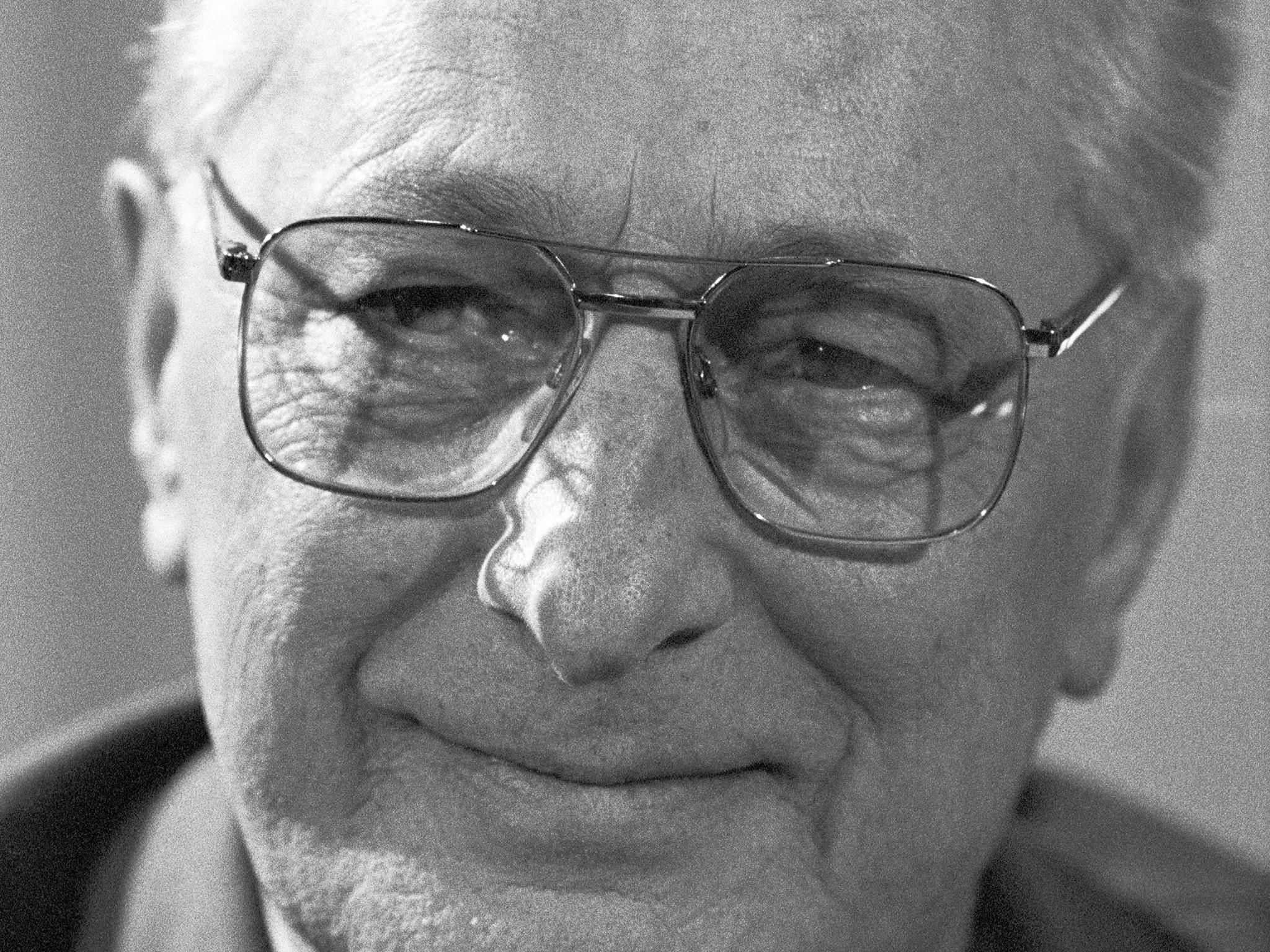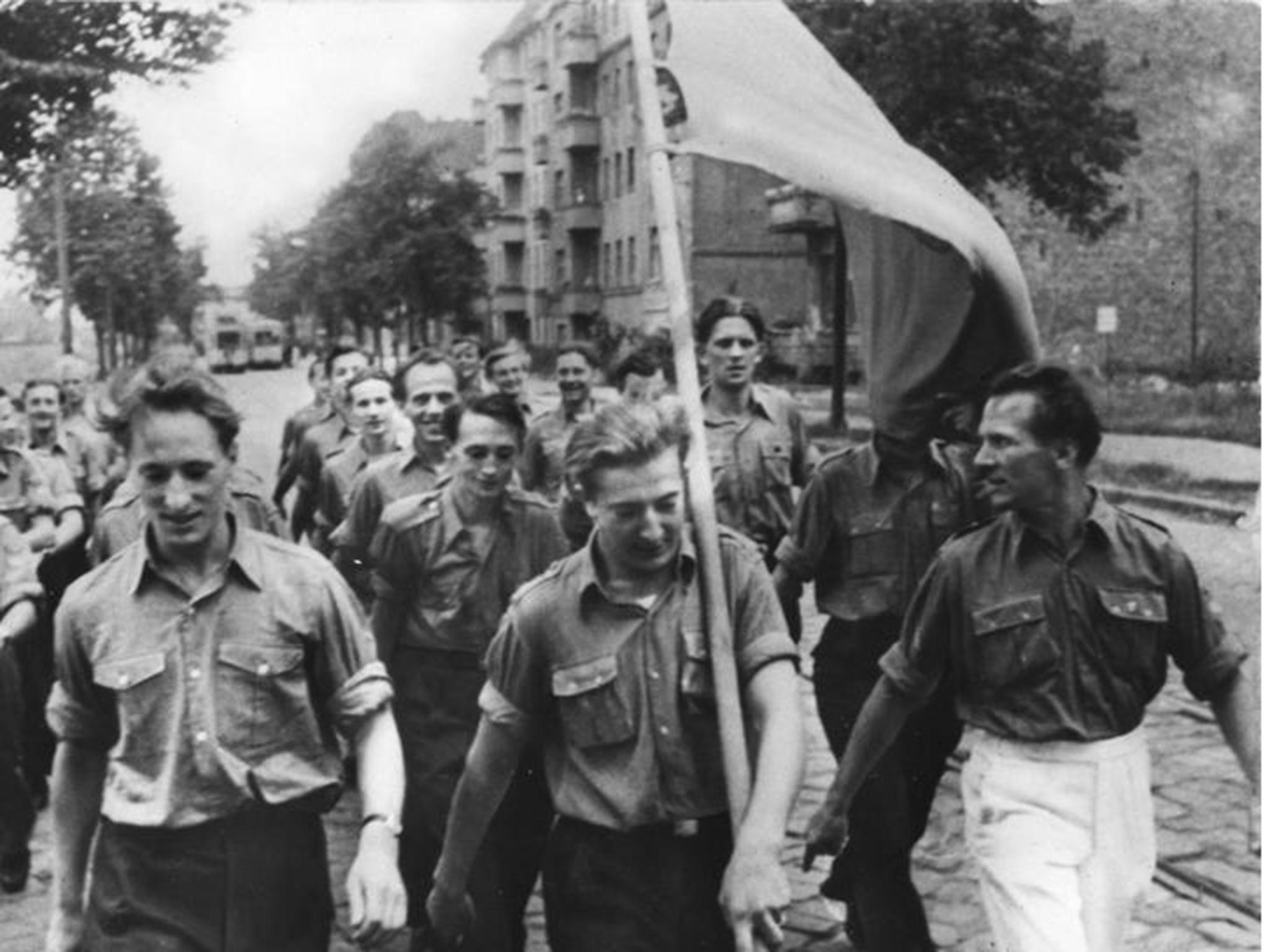Heinz Kessler, obituary: East Germany's last defence minister
Kessler was chiefly responsible for the shoot-to-kill policy before the Berlin Wall came down

Your support helps us to tell the story
From reproductive rights to climate change to Big Tech, The Independent is on the ground when the story is developing. Whether it's investigating the financials of Elon Musk's pro-Trump PAC or producing our latest documentary, 'The A Word', which shines a light on the American women fighting for reproductive rights, we know how important it is to parse out the facts from the messaging.
At such a critical moment in US history, we need reporters on the ground. Your donation allows us to keep sending journalists to speak to both sides of the story.
The Independent is trusted by Americans across the entire political spectrum. And unlike many other quality news outlets, we choose not to lock Americans out of our reporting and analysis with paywalls. We believe quality journalism should be available to everyone, paid for by those who can afford it.
Your support makes all the difference.First, there would be a shout: “Stop, stand still or I will shoot.” Then a warning shot. Finally a shot for real, preferably at the legs – though often not.
Figures vary, but many hundreds of people died fleeing East Germany under the regime’s shoot-to-kill policy before the Berlin Wall came down in 1989, and Heinz Kessler, who has died aged 97, was one of the men primarily responsible for enforcing it.
Kessler was born into a communist family in Lower Silesia, and joined the Communist Party’s youth wing, the Young Pioneers, when he was six. He was an apprentice car mechanic, and was conscripted into the Wehrmacht when the Second World War broke out. When Germany invaded the Soviet Union, he deserted to join the Red Army, and was sentenced to death in absentia.
When the war ended he worked for the party in the Soviet Occupied Zone. “We vowed,” he said, “to build a fairer state on the ruins of Nazism.”
Along with his friend from the youth-wing days, Erich Honecker, he rose smoothly through the echelons of political and military power, and in 1961, when the wall went up, he supervised its construction and enforced the shoot-to-kill policy, or Schiessbefehl – “order to fire”.

In 1985 Honecker – the country’s leader from 1971 until just before the fall of the Wall – appointed him defence minister, and he became a member of the Politburo. But when the wall came down and Germany reunified, the authorities pursued those who had enforced the Communist regime’s brutally repressive policies.
Kessler was arrested in 1991 after officials received a tip-off that he was about to flee to Moscow disguised as a Red Army officer. They staked out a Soviet airfield, though they eventually arrested him in Berlin. Two years later he was convicted of manslaughter for his role in the shoot-to-kill policy, ordering guards to shoot fleeing refugees, and was sentenced to seven and a half years in prison.
He appealed to the European Court of Human Rights, claiming that his actions had been lawful, but the sentence was upheld, and he went into the Berlin-Hakenfelde prison in 1996, only to be released early after serving only two years. His wife, Ruth, died in 2013.
“There wasn’t enough criticism and self-criticism,” he later acknowledged when discussing why the Communist project had unravelled. “There was a general sense of complacency. We, myself included, stopped caring what the people thought.”
He made a late return to politics in 2009, when he joined the German Communist Party and stood in the Berlin state elections two years later. He published a book in defence of the old regime’s policies, Without the Wall There Would Have Been War.
“On some matters I cannot change my position,” he said. “I refuse to sacrifice my Communist beliefs to the fashion of the day. I am and remain a believer in democratic centralism and a revolutionary socialist party. The systems that are now in place are not solving people’s economic, social and environmental problems. Other ways have to be found. New social structures will emerge, including some that embrace the socialist principles I believe in.”
Kessler was defiantly unapologetic – proud, even – about the wall. He regarded German reunification as “callous and unjust”, and regretted that the wall had ever been breached.
“While the wall was standing, there was peace,” he said. “Today there’s hardly a place that isn’t in flames. The wall was our protection – it was fantastic for me to be part of it. Were you ever in East Germany? It was a wonderful country!”
Heinz Kessler, born 26 January 1920, died 2 May 2017
Join our commenting forum
Join thought-provoking conversations, follow other Independent readers and see their replies
Comments